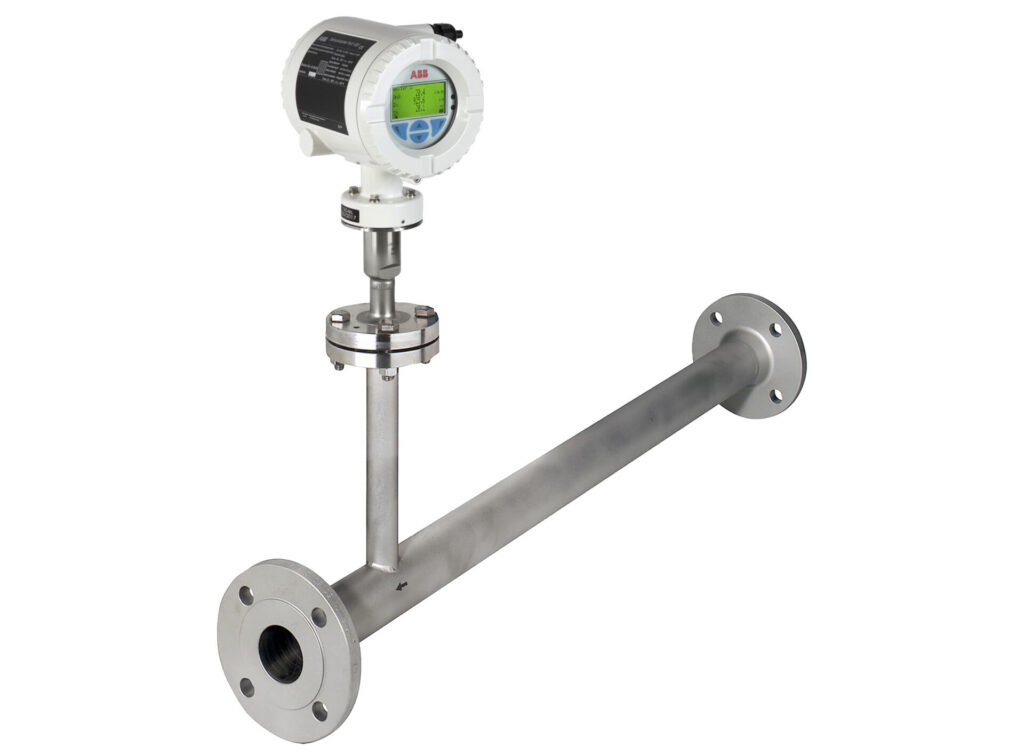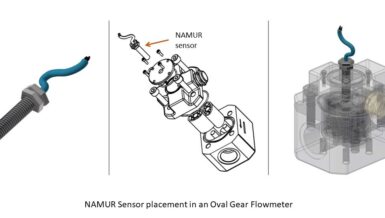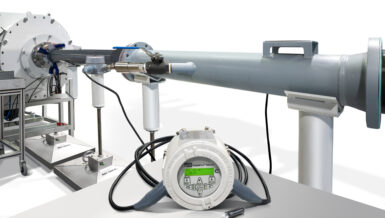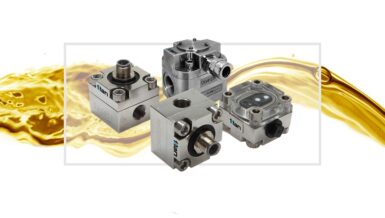Utility companies and sewage treatment plants utilize anaerobic digestion to process biodegradable waste and sewage sludge, collectively known as biomass. This process generates biogas, primarily composed of methane and carbon dioxide, with trace amounts of other gases.
The methane, hydrogen, and carbon monoxide in biogas can be combusted to generate energy, either through boilers or combined heat and power (CHP) systems.
The resulting electricity and heat are often used to sustain the digestion process or warm buildings, while any surplus can be sold to suppliers or fed back into the local grid, contributing to a more sustainable energy landscape.

The Application
A major sewage treatment facility sought to upgrade its four digesters by implementing a system to monitor biogas production from sewage sludge. Initially, the biogas was used to fuel multiple boilers, with a long-term goal of integrat-ing a combined heat and power (CHP) system on-site.
Accurately measuring biogas output would enable the facility to assess the efficiency of its anaerobic digestion process. Optimizing this efficiency is crucial – overloading the digesters with excessive biomass could disrupt microbial activity, leading to costly system downtime and a resource-intensive restart.
Conversely, underfeeding the system reduces biogas production, resulting in lower electricity and heat output, ultimate-ly impacting financial returns.
The Challenge
The sewage treatment facility experienced fluctuations in biogas volume and pressure due to seasonal changes and variations in sludge input.
To optimize efficiency, the company required a precise flow measurement system capable of accurately monitoring biogas production. This system is needed to withstand low pressures, moisture, particulate content, and flow rate fluc-tuations without compromising accuracy or reliability.
The Solution
ABB provided the sewage treatment facility with thermal mass meters to accurately measure biogas production. These meters offer approximately 1% accuracy with an impressive turndown ratio of 150:1, making them far more precise than most other flow measurement techniques – especially for the low flow rates common in pre-booster biogas appli-cations.
Unlike indirect measurement techniques that require additional instrumentation and complex calculations, thermal mass meters provide a direct measurement of mass flow. This makes them a more straightforward and cost-effective solution for optimizing biogas monitoring.
A key advantage of thermal mass flowmeters is their minimal impact on gas flow. With only two small probes inserted into the pipeline, they create an extremely low-pressure drop – typically between one and two millibars – ensuring accurate readings even when gas pressures are low.
Beyond supplying the equipment, ABB also provided dedicated service support. When a faulty gas recirculation pump contaminated a meter by coating it with oil, ABB’s team swiftly resolved the issue within two days, minimizing down-time and ensuring continued operational efficiency.
What ABB Can Offer?
ABB’s SensyMaster thermal mass flowmeters are designed for precise and dynamic gas measurement, making them ideal for industrial and test rig applications. These flowmeters provide direct mass flow or normalized volume flow read-ings without requiring additional pressure or temperature compensation, ensuring both accuracy and simplicity in gas flow monitoring.
Key Benefits of SensyMaster Flowmeters:
- High Accuracy & Fast Response – Maintains precision even at extremely low flow rates.
- Modular Design – Enhances accuracy while reducing installation, commissioning, and maintenance costs.
- On-Site Verification – Allows integrity checks of the sensing elements for reliable performance.
- Versatility – Supports up to eight different applications with stored gas flow curves in a single meter.
- Wide Application Range – Ideal for biogas measurement, boiler control, compressed air accounting, and pneumatics applications.
With its best-in-class response time and accuracy, ABB’s SensyMaster is a highly efficient and cost-effective solution for precise gas flow measurement in various industrial processes.
Installation Instructions and Specifications
When installing the devices, the straight pipe lengths specified in the data sheets must be followed. It is recommended to have a straight pipe length of 15 times the nominal diameter at the inlet and 5 times the nominal diameter at the outlet. Installation in areas prone to heavy liquid fallout should always be avoided.

Service
With over 100 years of expertise in instrumentation, ABB understands that customers seek high performance and relia-bility throughout an asset’s lifecycle.
Leveraging this extensive experience, ABB offers a comprehensive range of knowledge-based solutions, providing tai-lored instrumentation that meets the specific requirements of various industries. Whether adapting to unique applica-tion demands or ensuring compliance with industry standards, ABB delivers precision, efficiency, and long-term value to its customers.












